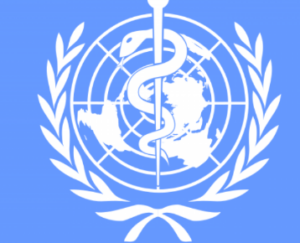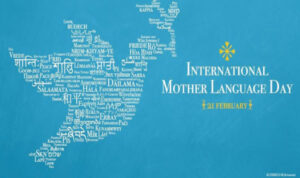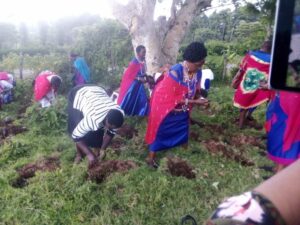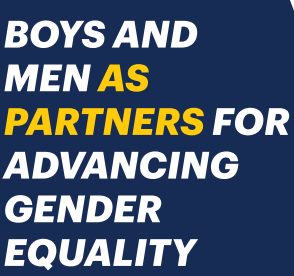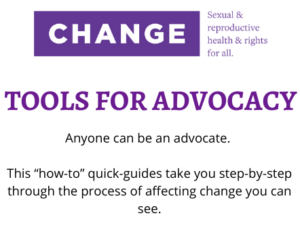
Living with albinism in parts of Africa can be a dangerous existence, but Grace Nzomo explains how in spite of every day limitations, people with albinism are beautiful and must be empowered to realise their potential.
Grace Nzomo is a 24-year-old psychology graduate from Kenya. “Many people are unfamiliar with the term “albinism,” but nearly everyone has heard of ‘albino’, and that is only the tip of the iceberg of the misunderstandings that face me”, she says.
Albinism is a rare genetic condition caused by a reduced amount of melanin in the skin, hair and eyes, which can affect people all over the world in any gender and regardless of ethnicity. The UN International Day for the Awareness of Albinism (IAAD) was established three years ago to recognise the importance of increasing understanding of the condition, and to fight against global discrimination and stigma faced by those who have it.
Growing up with albinism in a world largely uneducated about it both medically and socially is difficult. Growing up with albinism in Africa where it is more prevalent, is a public health issue. Beliefs continue to be influenced by cultural myths, making individuals with albinism vulnerable to many forms of violence and discrimination.
“It seems people with albinism are worth more dead than alive because when we are born, we are hidden away from discriminative society and when we grow up and can no longer be hidden, then we are hunted down for our body parts,” Grace describes.
Reports earlier last year exposed the horrifying extent superstitions are harming those with albinism. Human rights organisation Amnesty International released findings based in Malawi called, We are not animals to be sold or hunted, while numerous news stories compounded the evidence of abductions and killings of people with albinism by witch doctors. Victims are kidnapped and dismembered, and can have their body parts sold for up to $75,000 under the pretence that they can bring wealth, success, fertility and good luck. During election periods, Grace explains: “there is a market for my body parts in neighbouring Tanzania, because some politician has been told by a witch-doctor to get my hand or leg in order to win that tough election.”
If people with albinism aren’t living in fear of cultural witchcraft incited brutality, social and medical challenges also present a multitude of complex barriers. Grace tells of how most children with albinism are “kept hidden at the backyard of society away from others”, causing them to develop low self-esteem. It is also common she says, for children with albinism to grow up in single-parent families as fathers disown the mother, alleging that the wife has been unfaithful to him with a white man.
The lack of melanin in their skin makes those living with albinism particularly susceptible to skin cancer, as ultraviolet radiation from the sun cannot be absorbed. Grace says how in the past children were “left in the sun so as to ‘develop’ the necessary pigmentation to become ‘normal’ like the others, which often led to skin cancer.” It is imperative for people with albinism to take extra precautions when outside, such as wearing wide-brim hats, long-sleeved clothing and sun screen.
Insufficient melanin in the eyes also leads to reduced vision, which has meant huge limitations being placed on people with albinism to realise their potential. Grace depicts how her high school teachers decided she was not able to learn chemistry, physics and geography because of her ‘poor’ eyesight. She was forced to learn braillele and had to sit her exams in braillele because the Kenyan education system says braille transcribers are not competent enough to transcribe these subjects.
“Using braillele in maths was like trying to teach someone the Greek language”, Grace remarks. She says accepting that she had to use braille was very difficult because it felt as though they were indirectly saying she was blind. At present, 70% of Kenyan children with albinism attend schools for the visually impaired, where they are forced to learn braille yet are not blind. The level of vision for a person with albinism is individual-dependent, and only a professional ophthalmologist is equipped to accurately assess the level. Meanwhile further learning impairments can be a result of previous or ongoing trauma and fear, made worse by lack of support by teachers.
Despite having grown-up in a world where she is constantly interrogated about why she looks ‘different’, Grace is a positive promoter of albinism. Through the Dr. Choksey Albinism Foundation, she dedicates her time and skills to children and parents of children with albinism who may have never had any hope of living a life free from fear and discrimination. Grace herself does modelling, seeing fashion as a vehicle to express herself and demonstrate that albinism is beautiful. She envisions a society in which people with albinism are fully integrated, appreciated and empowered to live up to their full potential.
Understanding is the key to combatting rejection and social exclusion, encouraging compassion and patience, which is why June 13, the UN day for albinism awareness is important. But other practical measures are crucial to integrating individuals with albinism in society from an early age, to prevent them from facing marginalisation throughout their lives. Instead of forcing children with albinism to attend schools for the blind for instance, they should attend regular schools equipped with the necessary specialist resources, the provision of support workers and the assignment of peer mentorship.
In Kenya, public national hospitals provide sunscreen for free for people with albinism, but insufficient knowledge of sun protection in the first place puts many at risk of fatal sun exposure. Significantly, governments must develop their health care policies on albinism, to ensure safe, supportive and inclusive environments where everyone is able to realise their potential.
Grace owes her confidence to the strength of her mum, who tried to understand her condition without any guidance or initial awareness of albinism. In every class at school, her mum educated teachers about Grace’s needs – such as how to write legible letters and numbers on the board, and the need for Grace to sit at the front due to her short-sightedness.
On International Albinism Awareness Day in 2016, the UN Secretary-General Ban Ki-moon stated that as part of the 2030 Sustainable Development Goals ‘nobody should be left behind’, the cycle of attacks, discrimination and poverty on people with albinism must be broken. When asked what the most important information everyone in society should know about albinism, Grace remarks, “We only lack a pigment which affects our skin sensitivity to the sun and our vision, nothing else. We’re just ‘normal’.

